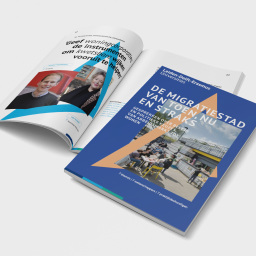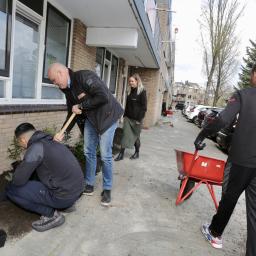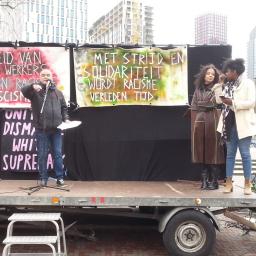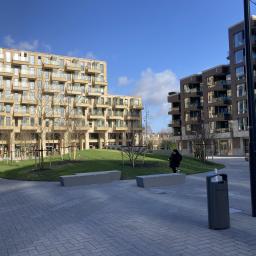If a young person from a migrant background climbs the social ladder despite internship discrimination, the exclusion often gets worse. It is only when we acknowledge these problems that we can resolve them, say Nadia Bouras and Tikho Ong, who are both experiential and academic experts. 'Racism and discrimination run riot in society, but that is passionately denied.' By Rianne Lindhout
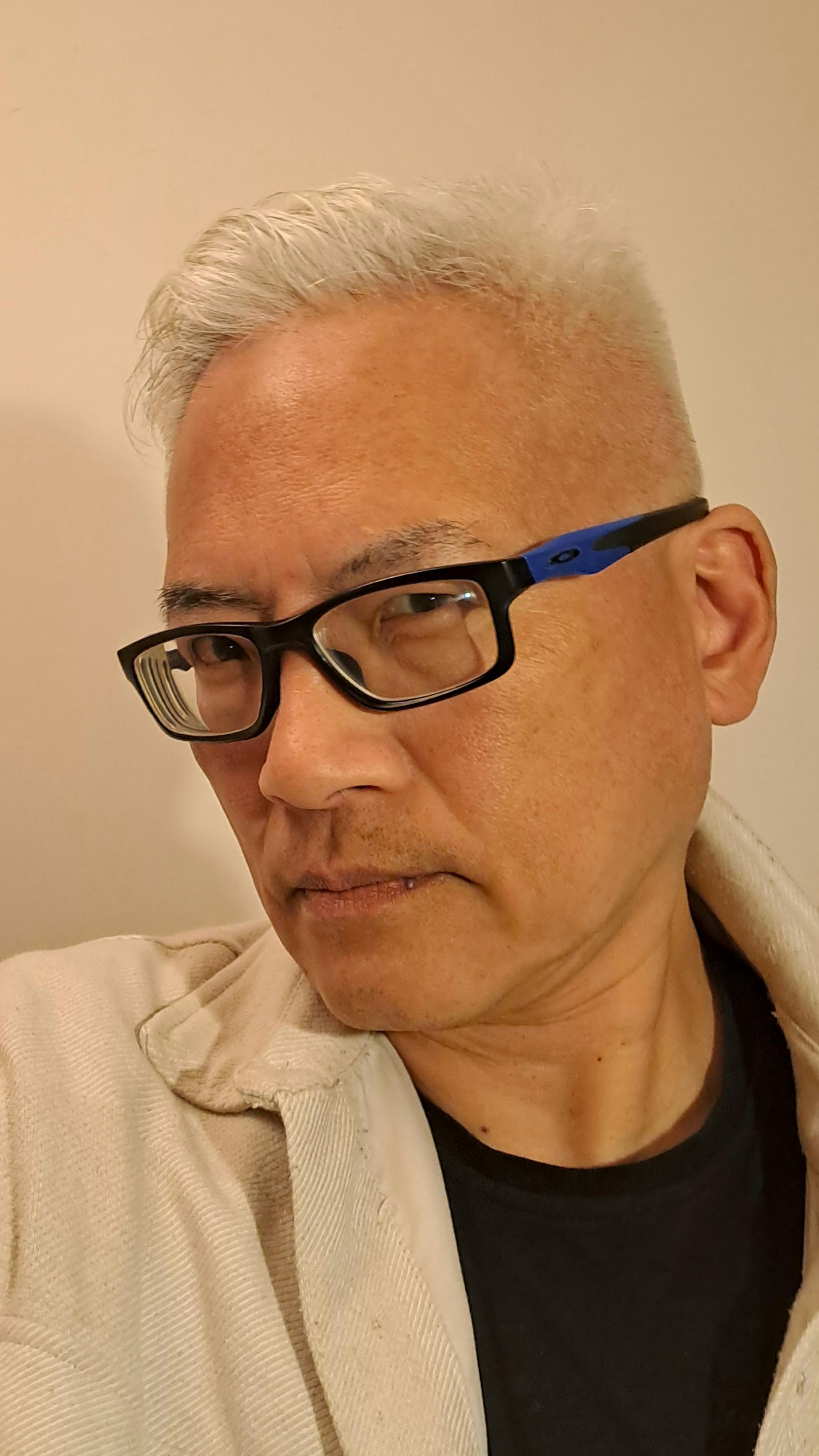
Do discrimination and exclusion have a particular root cause? Tikho Ong, of the RADAR anti-discrimination agency: 'From my study of psychology, I know that people have unconscious, automatic reactions and prejudices that are very strong. They are based on stereotypical images. As a result, people think about groups in terms of hierarchy. The annoying thing is that this is something everyone adopts, not just the white majority, for example. In the Netherlands, people then think, my group is number one, then the white Dutch, and then the rest. Despite this, I believe there are historical and social aspects at play, beyond the individual, in addition to psychological causes. The way in which a city or organisation is designed or structured does make a difference.'
So how should you design or structure an organisation or a city to combat discrimination effectively? Ong: 'For a few years now, we have been trying to take action against discrimination involving internships. Many MBO (senior secondary vocational education) and HBO (higher professional education, below university level) schools have no hotline that students can contact in the event of any allegations of discrimination. I recently spoke to staff at an MBO school in Overijssel that does have such a hotline, but nothing was reported by any of the 10,000 students. That obviously seems improbable. Students should be encouraged to use the hotline. We train internship teachers to recognise and acknowledge discrimination. For many teachers, it is an uncomfortable situation that they often just keep quiet about, even though it is something that people should feel able to discuss.'
Until you recognise that racism runs through the veins of society, you can't solve it.'
A highly complicating factor is that people do not agree on the seriousness of discrimination and exclusion. Historian Nadia Bouras: 'The reason racism is not declining in the Netherlands is that our society has insufficient realisation that it exists. No matter how big a scandal is, it is seen as just an incident. It doesn’t matter whether it concerns racist remarks by politicians or the childcare allowance or DUO (Education Executive Agency) affairs. Until you recognise that racism runs through the veins of society, you cannot solve it.'
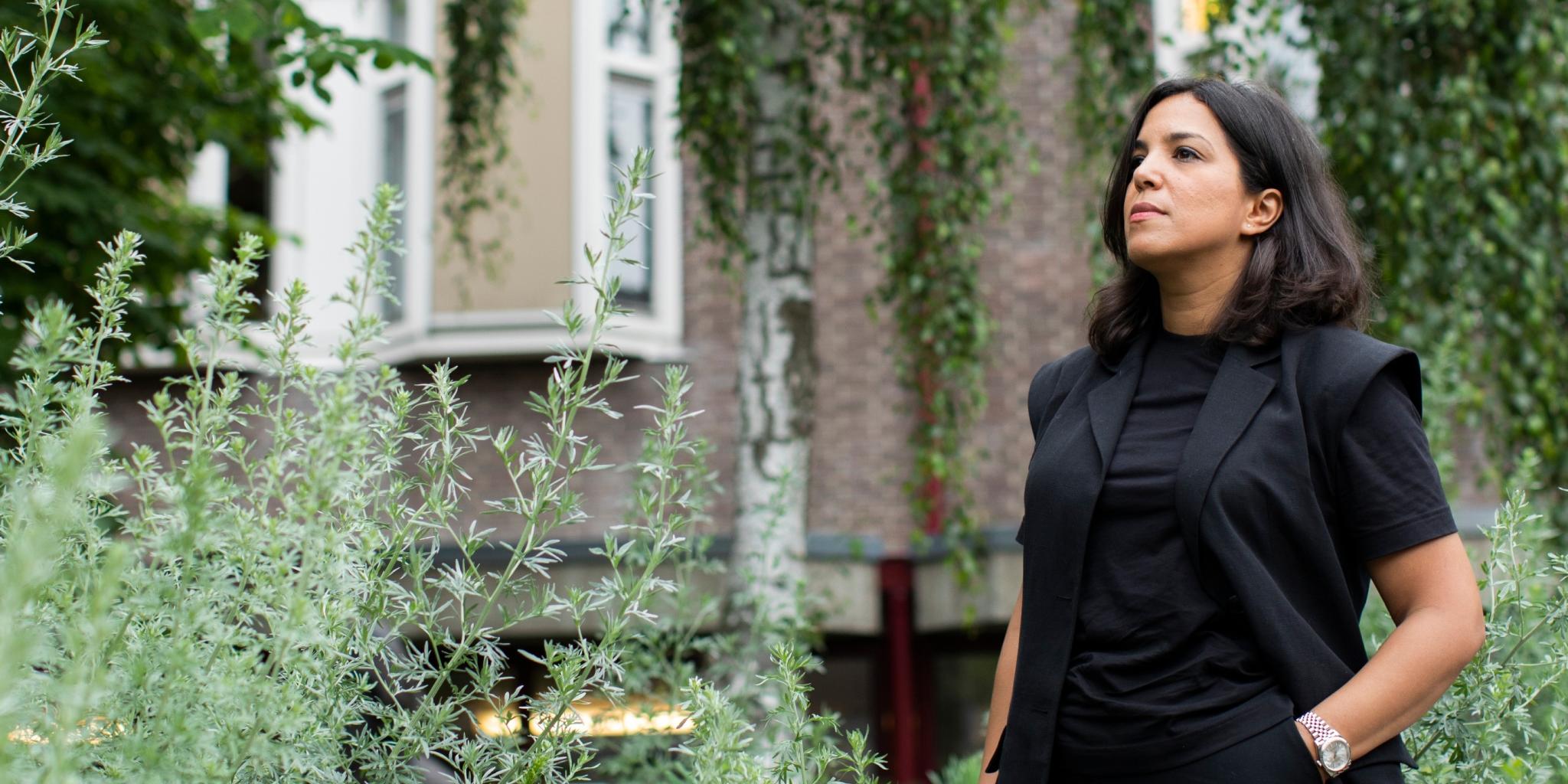
No-one considers themselves a racist. Bouras: 'The media, of course, also have a huge responsibility. If you constantly read in the newspapers that migrants and Muslims are nothing but trouble, employers may think twice about employing Mohammed. I am not entirely pessimistic, as we have also had the Black Lives Matter movement in the Netherlands. That has created tremendous awareness; it has made people more sensitive.'
We investigate, for example, whether estate agents discriminate.'
Do the RADAR foundation and similar organisations get much done? Ong: 'Our position is complicated. Some people see us as a palliative and do not believe we actually do anything. That is incorrect. Together with other anti-discrimination agencies in the Netherlands, we provide a hotline and assist people who report discrimination. We also encourage local authorities to consider what anti-discrimination policies they can adopt, in their role as organisations, employers, and providers of grants. Eindhoven, for example, has made much progress in this regard, relatively speaking. With a well-developed Implementation Programme on Diversity and Inclusion, the Eindhoven local authority is tackling discrimination in the labour market, housing market, and in the hospitality industry. We investigate on behalf of the local authority whether estate agents discriminate and we engage with those whose performance is under par. We refer them to anti-discrimination legislation.'
People think, I am quite willing to tolerate you as a cleaner.'
Does it help that more and more people from migrant backgrounds are pursuing careers? Bouras: 'No. A variety of studies have shown for decades that people who are successful, who we can consider to be well integrated, are affected by exclusion more than anyone else. That's the integration paradox.” People think, though not always consciously, I am quite willing to tolerate you as a cleaner or bus driver, but you must not think you are better than me. That also occurs in progressive circles. Deeply regrettable.'
Ong: 'Sometimes it’s very subtle, not something you can put your finger on, but it can feel like exclusion. Examples include: ‘You live in Leiden, but where are you really from?’, or, ‘You speak Dutch really well’. Comments of this kind can make you feel as though you don’t really belong.'
Bouras: 'If you say anything about it, you’re accused of taking offence too easily or of not being able to take a joke. Very awkward. We do not have to be colour blind, but develop forms of interaction for dealing with diversity. It should become the norm to say you don’t like hearing something. Discussion is better than an uneasy silence. I believe in constructive polarisation, especially if it challenges a position that violates the principle of equality. We are morally obliged to speak out against discrimination: we cannot allow ourselves to be lulled into a false sense of security.'
In addition to forms of interaction, are protocols needed to avoid excluding anyone from the labour market, for example? Ong: 'The chances of an applicant with a Dutch background being able to go for a job interview are much greater than those for someone from a non-Western migration background. As used to be the case with women, and to some extent still is. A law against labour market discrimination fell in the Senate in March, so for now we depend on goodwill.'
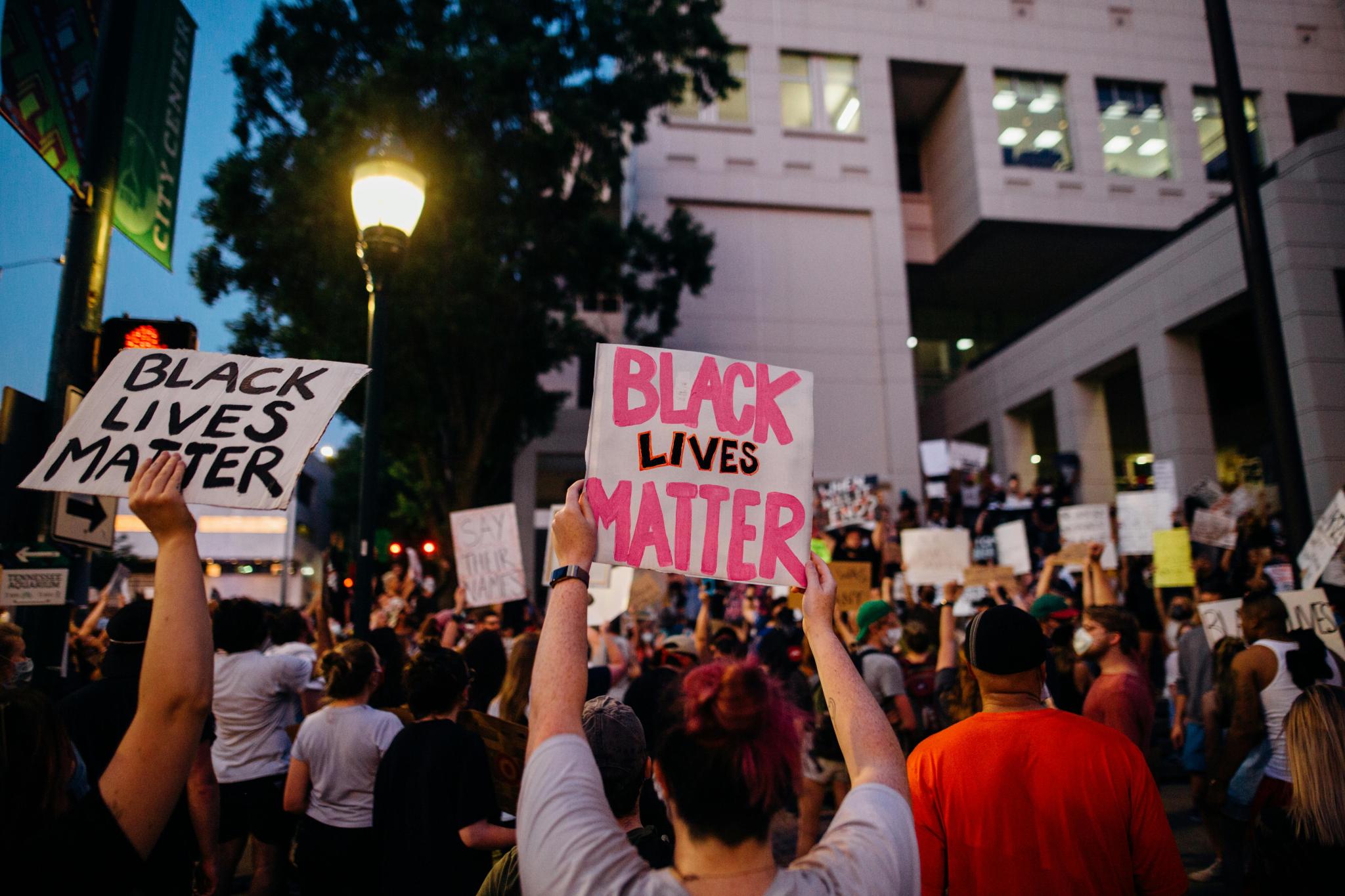
So what can well-meaning organisations do? Ong: 'They can select objectively by assessing candidates not on the basis of their CV or letter, but on the basis of their answers to set questions. You can then conduct the selection interview in a structured way using pre-prepared, competency-based interview questions. The answers to these are the guiding factor and you score them according to a clear, pre-established standard. The candidate with the highest score is then taken on. If, as a white organisation, you still use interviews to see who ‘feels’ most suitable, a person of colour will find it harder to get in. They simply don’t resemble closely enough the people who are already part of the organisation.'
The city of the future is increasingly a migration city. How do you physically design them to be as inclusive as possible? Ong: 'I think you have to be critical in terms of how you build and who you build for. Many ‘Vinex’ neighbourhoods are white enclaves: the white majority does not integrate. As an organisation, we are very much against the Rotterdam Act. It actually has another name (Special Measures Metropolitan Problem Act, Ed.) and is also applied in some other local authority areas. Under the act, local authorities may temporarily bar people with incomes at social security level from certain housing estates, streets, or areas with social and economic problems. The law affects certain groups more than others. And in many cases, it affects people from a migration background.'
Bouras: 'You can organise things at neighbourhood or city level, but anti-discrimination is ultimately the task of local and national government. That task begins with normative action. Our national political leaders fail at this completely and show no moral leadership. Instead, they practise scapegoat politics: migrants and asylum seekers are blamed for the fact that other people cannot find homes. A first step would be for the government itself not to use racist rhetoric, which normalises it. Laws, procedures, and institutions that do not discriminate are important in the rule of law, but are only half the story. What also matters is what we as a society do in word and deed with that rule of law. And a ruling party should certainly set a good example.'
Nadia Bouras is a historian, specialising in the history of Morocco and Moroccan migration. She is an associate professor at Leiden University and closely associated with NIMAR, the Dutch Institute in Morocco. She is active on X where she addresses discrimination and exclusion.
Tikho Ong studied psychology. He manages various prevention and research projects at the RADAR foundation. In fifty local authority areas, RADAR fulfils the statutory role of an independent anti-discrimination agency, where residents can get advice and support if they experience discrimination.
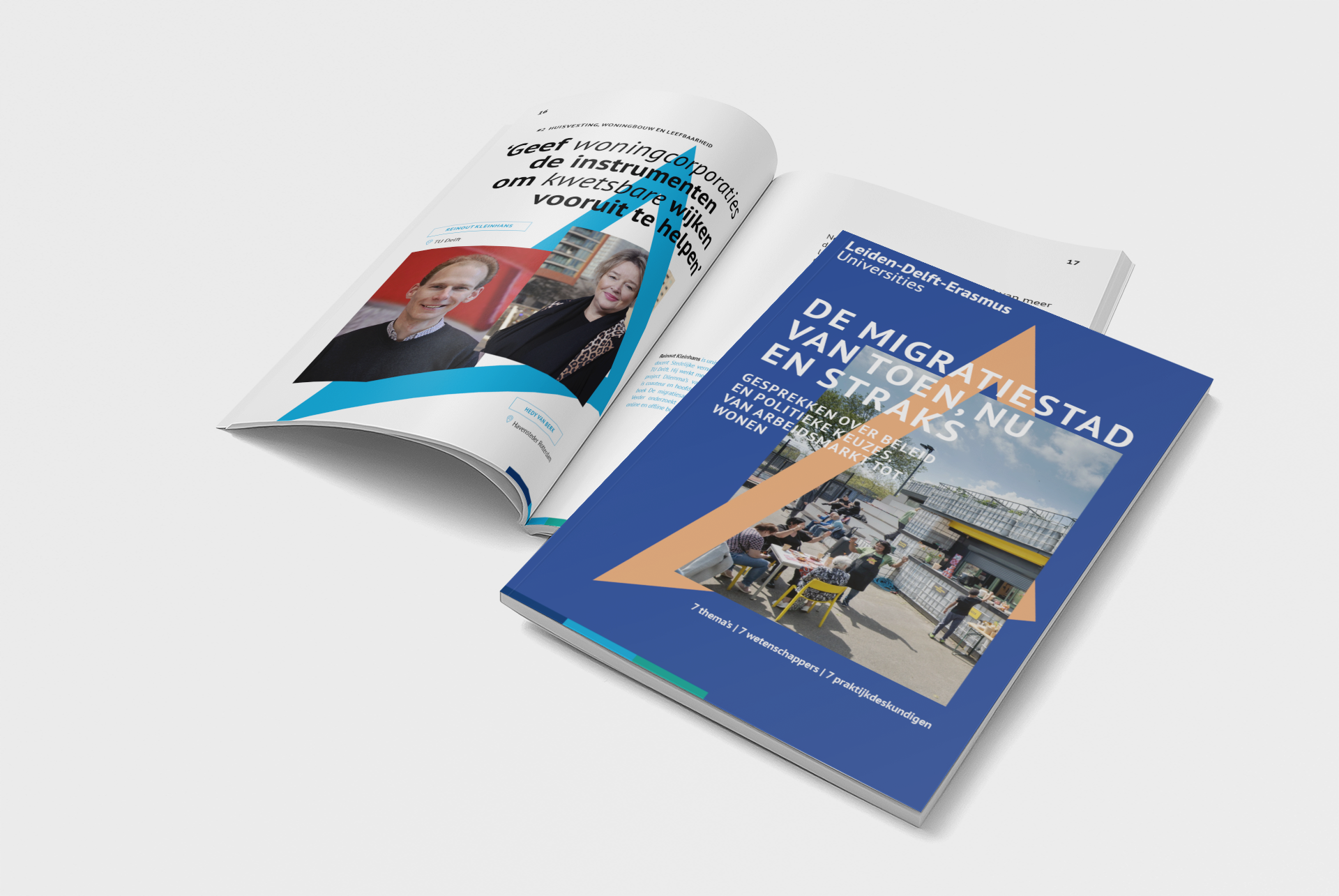 White paper 'The migration city of then, now and later'
White paper 'The migration city of then, now and later'
This article is from the sixth white paper of Leiden-Delft-Erasmus Universities. If you would like to copy one or more texts, please contact Katja Hoiting k.hoiting@tudelft.nl.
Sender of this edition is the Leiden-Delft-Erasmus Centre Governance of Migration and Diversity, founded in 2020 to conduct interdisciplinary research on the governance issues surrounding migration, diversity and inequality.

